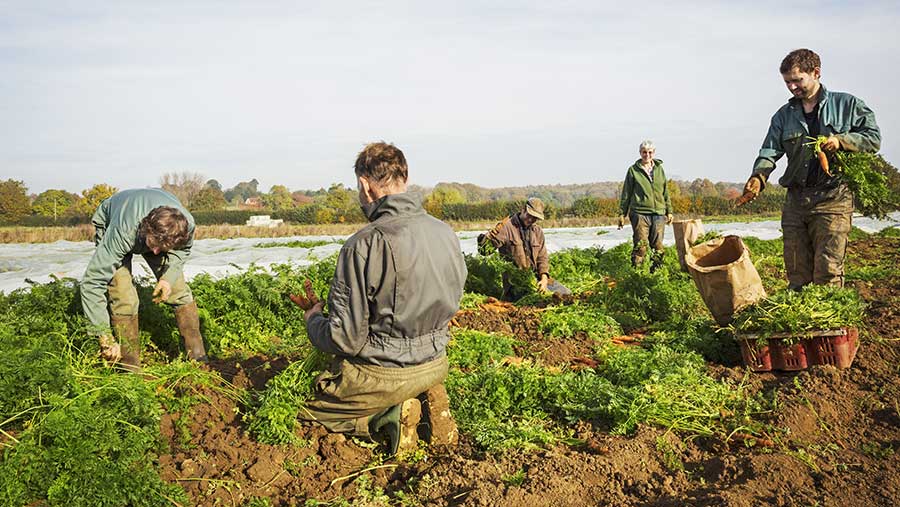Coronavirus: Urgent appeal for Brits to work on farms
 © Mint Images/REX/Shutterstock
© Mint Images/REX/Shutterstock Industry leaders have issued an urgent plea for British people to work on farms and help feed the nation amid a burgeoning labour shortage due to the coronavirus pandemic.
Some 70,000 seasonal workers are usually required annually on British farms – with many coming from overseas. But travel restrictions and tighter border controls are having a significant effect on the number of people able to travel to the UK.
With the soft fruit harvest due to get fully under way next month, labour provider Hops Labour Solutions said seasonal workers were urgently needed to help pick and process fruit and vegetables on farms and in packhouses.
It has launched a new scheme with the National Federation of Young Farmers’ Clubs, encouraging people to apply for jobs on farms. Please note, this website may not be working due to excessive traffic, if so please try again later. Alternatively, you can contact Hops Labour Solutions on +44 (0)2476 698 000.
See also: Coronavirus: How financial support package will help farmers
Farm jobs could provide an income for students, job seekers and anyone who had been laid off work due to the impact of coronavirus.
More organisations looking for farmworkers
The following two recruitment agencies piloted the government’s seasonal workers scheme and are looking for staff:
- Concordia: COVID-19 seasonal work , telephone 01273 422 218
- Pro-Force Recruitment, telephone 0333 335 6262
The following industry organisation, which represents 98% of soft fruit growers is also looking for workers to help harvest crops and get fresh fruit and vegetables to the public:
- British Summer Fruits, telephone 020 7575 7654
Hops operations director Sarah Boparan said: “We urgently need a UK labour force which can help harvest crops to feed the nation.”
She added: “At a time when international travel is restricted and people are panic buying due to the Coronavirus, it is crucial that growers can provide enough British produce to our supermarkets and local shops.”
British workers could help support the industry in jobs that are usually filled by EU workers, said Ms Boparan.
Change in habits
NFU horticulture chairman Ali Capper said changes in eating habits were exacerbating the situation. More people were spending more time at home to reduce their risk of exposure to the virus. This meant they were buying more food from supermarkets rather than eating out.
Prime minister Boris Johnson has already urged shoppers to be sensible after supermarket shelves were left empty by people stockpiling food. This week Mr Johnson was again asked if supplies would last.
“We are absolutely confident our supply chains are working, and will work, and we will get farm to fork food supplies,” he told reporters at a press conference on Tuesday (17 March). “People should have no reason to stockpile or panic buy.”
Former NFU deputy president Guy Smith said the crisis could change the way the UK looks at food security and production. But he added: “This is not the time for the farming industry to seek to take political advantage, it’s time for the industry to ask what it can do to help.”
